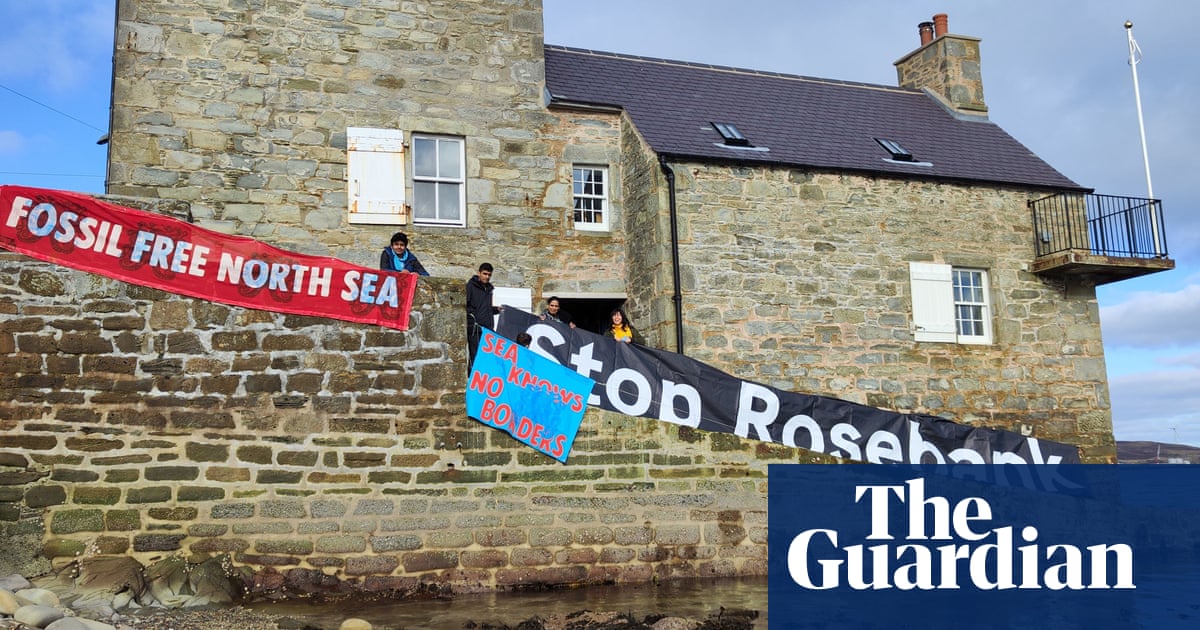Infra
Climate activists across Europe block access to North Sea oil infrastructure

Climate activists in four countries are blocking access to North Sea oil infrastructure as part of a coordinated pan-European civil disobedience protest.
Blockades have been taking place at oil and gas terminals, refineries and ports in Germany, the Netherlands, Norway and Sweden, in protest at the continued exploitation of North Sea fossil fuel deposits.
Further actions were expected in Denmark, while in Scotland activists staged banner drops calling for an end to the exploitation of North Sea oil and gas.
The protest comes in the same week a report found none of the big fossil fuel producing countries in the region had plans to stop drilling soon enough to meet the 1.5C (2.7F) global heating target set by the Paris climate accords.
“Under the campaign North Sea Fossil Free acts of civil disobedience are happening all around the North Sea,” Extinction Rebellion said.
“The governments of these six countries are permitting new fossil extraction infrastructure, harming not only the North Sea ecosystem, but also committing the whole world to dangerous levels of warming.
“Activists have come together today in a series of actions – unfolding across the day – to demand all North Sea oil countries align their drilling plans with the Paris agreement now.”
In Norway, dozens of activists blocked the road entrance to the petroleum refinery in Rafnes, on the country’s south-east coast. Others were braving snowy conditions to block tankers from docking at the facility.
Jonas Kittelsen, a spokesperson for Extinction Rebellion Norway, said: “I’m ashamed to be a Norwegian. Norway profits massively from aggressively expanding our oil and gas sector, causing mass suffering and death globally. My government portrays us as better than the rest of the world, which we are not.”
In the Netherlands, Extinction Rebellion and Scientist Rebellion were blocking the main access roads to Pernis refinery, the largest refinery in Europe, owned by Shell, which plans to increase and expand its North Sea oil and gas production.
Bram Kroezen, a spokesperson for XR Netherlands, said: “The fossil industry and our governments want us to believe that gas from the North Sea is clean, but clean gas is a dirty lie.”
after newsletter promotion
In Germany, activists in white overalls from the Ende Gelände climate protest group blocked access to the floating liquified natural gas terminal at Brunsbüttel; and in Sweden XR activists were blocking the oil harbour in Gothenburg.
In Scotland, local XR groups staged a series of banner drops at locations they described as of “strategic importance” to plans to expand oil and gas production. The UK government has handed out dozens of new licences for oil and gas exploitation off Scotland’s north-east coast since late last year.
This week a report by the campaign group Oil Change International found the UK, Germany, the Netherlands, Norway and Denmark had failed to align their oil and gas policies with their climate promises under the Paris agreement.
The report found that policies in Norway and the UK were furthest from the Paris climate agreement because the countries were “aggressively” exploring and licensing new oil and gas fields.



